#and he plays the fiddle in a bluegrass group
Text
dabi considers it a privilege to walk your drunk ass home. literally has to fight down a smile the whole way there.
#he’s so happy abt it#like he doesn’t understand it himself but the fact that you trust him…..#makes him feel feelings#helps you get out of your dirty clothes and cleaned up and ready for bed too#makes you a hot pocket or something#let’s you play with his hair and press messy kisses against his cheek#tw alcohol#in the tags:#hi I’m dwunk#tonight was so fun!!#i went to a party at a friends house and then I went to see another friends group play at a local dive bar#i fink I have a wittle crush on him tbh#he’s an IT head for my school and he’s been helping out in my program specifically lately#he’s also a professional DM#and he plays the fiddle in a bluegrass group#i have such a weakness for weirdos idk idk#anyway akskdkdkd#it was so fun to just hang out and be silly#missed it lately#silliness is so essential to life#silliness and the strongest margaritas I have ever experienced sjjsjdjd
338 notes
·
View notes
Text
273: The Nitty Gritty Dirt Band // Will the Circle Be Unbroken
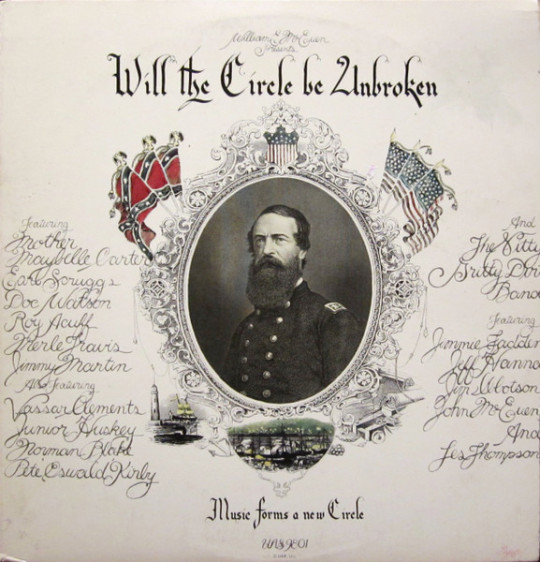
Will the Circle Be Unbroken
The Nitty Gritty Dirt Band
1972, United Artists
Who can endure a sentimentalist music critic? Still, this morning anyway, my heart’s fit to weep over a one-hundred-and-ten minutes of exultant roots music and a beautiful idea executed to perfection. The notion behind Will the Circle Be Unbroken was to use the Dirt Band, a crew of talented longhairs from California, as a bridge between the trendy country rock of the day and the genre’s pantheon of avuncularly voiced pioneers. (And I guess in Maybelle Carter’s case ‘aunticularly voiced.’) Many of these sorts of intergenerational tribute projects give me queasy tasting notes of hapless arts council funding or the rap number from Walk Hard, but somehow this triple LP from the heart of rock’s imperial phase manages to be both reverent of traditional country and bluegrass history and present these genres as living organisms.
youtube
The Dirt Band are joined by a Field of Dreams cast of legends, plus an adjunct wing of ace players like fiddle genius Vassar Clements, and while the Dirties sneak in one original the focus is squarely on the standards. None of these takes supplant the originals, but the recording fidelity, superlative playing, and warm communal energy make for lovely alternatives. Merle Travis’s “Dark as a Dungeon,” one of the greatest folk and country songs of the century, has never sounded more lovely or doomed; Doc Watson gives Jimmie Driftwood’s “Tennessee Stud” a broad-shouldered boisterousness; Earl Scruggs and the Dirt Band’s John McEuen present the classic fiddle reel “Soldier’s Joy” as an infectious banjo duel.
Many of the songs include snatches of studio chatter between the band and their guests: Mother Maybelle sounds like the sweetest old thing imaginable; Roy Acuff comes off like as much of a pompous Haven Hamilton-type as I’d always heard he was; Jimmy Martin gives elderly prospector cricket. The tapes are even rolling for the first meeting of guitar legends Travis and Watson, who have an adorably awkward little chat before declaring themselves “buddies.” These peeks into the process are part of Circle’s artifice, but it feels like an honest attempt to capture the historic nature of the summit. The album rounds off with nods to the deep past in the form of a number of Carter family cuts, an homage to bluegrass father “Uncle” Dave Macon, and a group singalong of the spiritual “Will the Circle Be Unbroken?” But then, right there at the end, we get 17-year-old Randy Scruggs performing a solo instrumental take on Joni Mitchell’s 1968 “Both Sides, Now.” The symbolism of the teenaged son of Earl Scruggs playing such a recent (and aptly-named) tune is clear, quietly closing the circle between past and present, a pact sealed.
youtube
273/365
#the nitty gritty dirt band#merle travis#doc watson#roy acuff#mother maybelle carter#maybelle carter#vassar clements#uncle dave macon#earl scruggs#jimmy martin#bluegrass#country#'70s music#music review#vinyl record
11 notes
·
View notes
Note
hi!! sorry to bother i just have a question regarding neapolitan mandolins aueueu.. for my birthday my dads gonna get me a mandolin and since we're neapolitan i was like "how about a neapolitan mandolin :3c ?" and he was like "ahsdj uhh hard to get hands on do you want an a shaped one or an f shaped one." im doing research by myself on which one is more similar but i also would like to consult an expert (or certified music nerd, whichever title you prefer). thank you for your time :3
hey! I am by no means an expert, just a guy who fiddles around a lot, but I can totally tell you about what my experience has been.
while I love my neapolitan, especially as a History Person, I honestly don’t think there’s a specific benefit to using one unless you’re specifically intending to do more classical repertoire. in my experience the tone is somewhat different but the most significant distinction is that either an F or an A style flatback is way louder, which, given that I do mostly folk rep in groups, has been a huge advantage. these days I use my A style instrument more than the neapolitan, which I admit is partially because I think it’s just a better quality instrument with nicer tone/tuning/clarity of sound, but it’s also just a lot more versatile and easier for my fellow musicians to hear. I do think there is an advantage to starting on a flatback if this is your first time playing if only in the sense that they’re easier to hold and the neck is wider, and they’re just a lot more versatile (also neapoltian CASES are almost harder to find than the actual instruments are… I literally use a soft bari uke case for it because I don’t have a proper one). obviously I’m biased based on the quality of my individual instruments, since I think my A style is just objectively a better constructed instrument, but I prefer to use the A style when I’m playing, and especially performing, in groups, and usually save the neapolitan for historical reenactments and places where I prioritize period accuracy over a really clear/loud sound.
as for A vs F style I honestly can’t speak way too much about them… I will say I am fortunate enough to have had access to multiple instruments, and when I was choosing based purely on sound I picked the A style instrument that I currently use over a similar quality F style, but that very well could have just been a result of the quality of the individual instruments—I haven’t had a ton of general experience actually playing on either style in specific. it seems like a lot of bluegrass people seem to prefer the F style, and certainly it visually looks more bluegrassy, but I honestly don’t think there’s going to be a huge difference in sound. an A style instrument might be a little more affordable and sound nearly identical, but again people always seem to associate F style with bluegrass so maybe there is a tone difference or something that I don’t know about.
it’s hard to say which would be more similar to a neapolitan just because they’re both pretty similar to each other, but I’ve been personally very happy playing on an A style as someone who started on a neapolitan. however I do play 90% folk repertoire and not classical or bluegrass, as mentioned, and on top of that I do mostly rhythm. I’m not a professional by any means but any solo stuff I play still has a very clear and pleasing sound and I can’t imagine why it wouldn’t be a very fine solo instrument. I’m not sure what kind of repertoire you’re interested in but I think either style would still be usable in any context that isn’t, like, a professional classical setting. I dunno, sorry that this doesn’t really give you an answer per se, but I hope that gives you some insight as like… a neapolitan to A style convert lol.
3 notes
·
View notes
Note
lotr with bluegrass music or instead of a ring gollum has a banjo
Arwen chased by the Nazgul while Foggy Mountain Breakdown blasts in the background (sorry, I don't make the rules, that is *THE* chase song). Haunting high lonesome harmonies instead of the ethereal fantasy vocal music. Ralph Stanley's singing "O Death" or something when Gandalf falls into the deep with the Balrog. Concerning Hobbits is fiddle-based and keeps that lilting folksiness. Hmhm. I was screwing around, but some of this could actually work. ;)
I think I want to use this opportunity to be as obnoxious as possible and assign instruments to the Fellowship. Because the Fellowship of the Ring is a bluegrass band now, right?
------
Sam: Rhythm guitar, because that is the ultimate rhythmic support instrument and Sam is the heart and support of the group
Frodo: Lead vocals and guitar, because the Fellowship focuses around him
Merry: Mandolin. An instrument that can easily shimmer into the spotlight, take the lead, or support in the background.
Pippin: Bass. The instrument that doesn't get as much appreciation as it should and contributes more than non-musicians realize (says the person with heavy pro-Pippin bias <3 ) (yeah yeah yeah bass is a foundation instrument and Pippin isn't the foundation but shhhh)
Aragorn: Fiddle, which has been around forever in the heart of American folk music, the true king of the instruments, around which bluegrass was built (or so Father of Bluegrass Bill Monroe claims)
Legolas: Banjo, because he needs to be as dramatic and fabulous as possible, and even if you're just playing straight chords, banjo sounds so ridiculous people will stare at you
Gimli: Also banjo, first because it's as big and obnoxious as an axe, second because almost no one wants two banjos in a bluegrass band; this gives ample opportunity for him and Legolas to conflict
Boromir: Fiddle, because two fiddles are fantastic in a band, and everyone mourns the loss of its simultaneous leadership and harmony when the second fiddle fades
Gandalf: The manager herding everyone to get from one gig in Town A to another gig in Town B
#what have I done#LOTR#Lord of the Rings#The Lord of the Rings#non-dragons#not sure I LOVE these roles but they're what I came up with while on the work clock#(shhhhhh I'm totally getting work done <.<)#Tolkiendom#Middle Earth#The Fellowship of the Ring#Fellowship of the Ring#too lazy to tag all the chars#my joking around is on the Jackson movie characterizations for any who doth protest#bluegrass#thatbanjobusiness#that banjo business#if I were still in a phase of lots of free time for editing I think I'd be annoying enough to edit some new background music onto clips
21 notes
·
View notes
Text

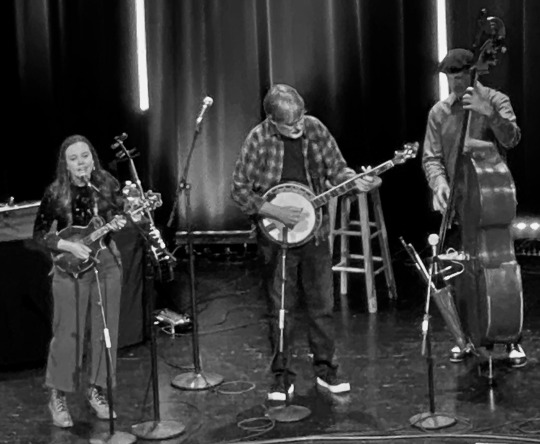
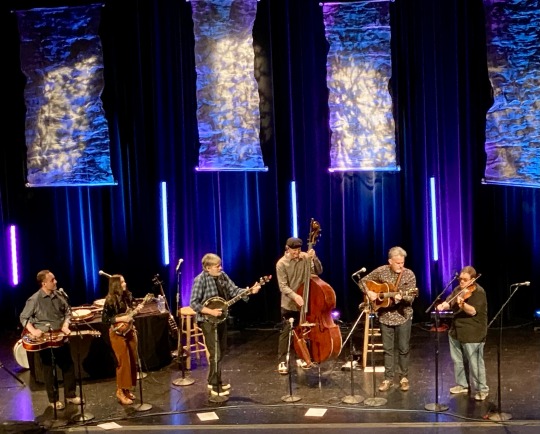
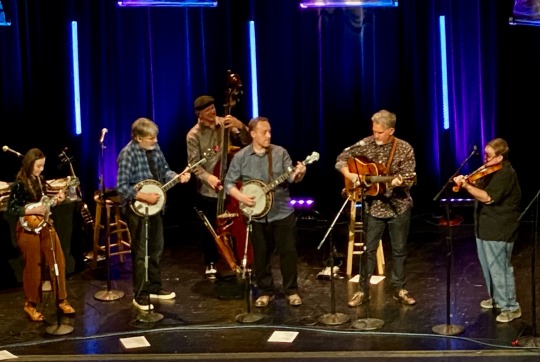
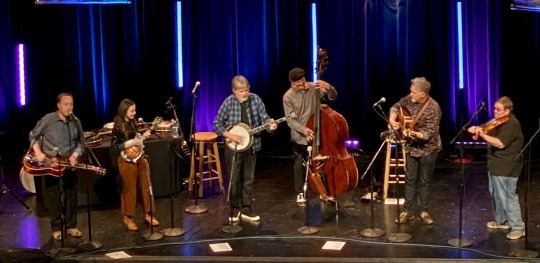
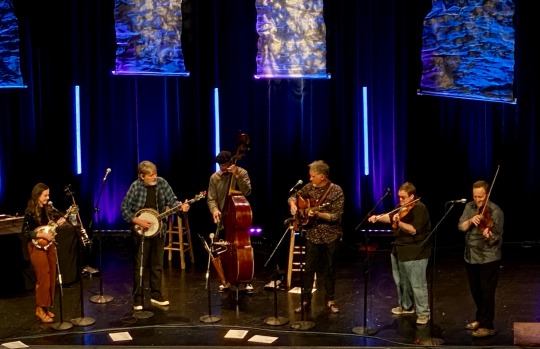
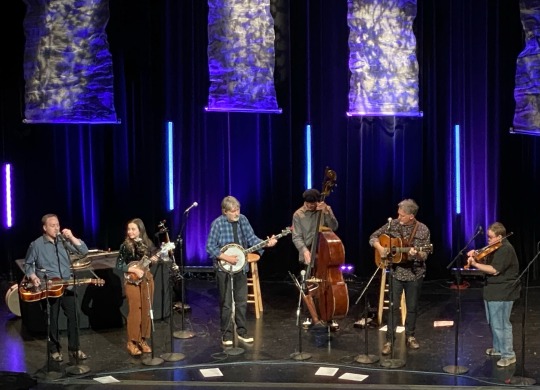

Béla Fleck’s My Bluegrass Heart at Midland Theatre, March 30, 2023
With mic’ing issues resolved, Béla Fleck’s My Bluegrass Heart reached its blood-pumping potential during set No. 2 of its first show of 2023.
“You’re all still here? So we should play different songs?,” Fleck deadpanned after returning to the stage.
With that, the banjoist and mandolinist Sierra Hull eased the half-full Midland Theatre into “Psalm 136,” which Fleck described as a Ugandan-Jewish number and whose origins could be heard in the musicians’ twin playing - an exquisite display of harmony and communication without language.
Before long, the rest of the sextet - fiddler Michael Cleveland, guitarist Bryan Sutton, bassist Mark Schatz and Justin Moses on Dobro, fiddle and banjo - had reassembled to continue the mostly instrumental voyage across an ocean of songs from My Bluegrass Heart, the Bluegrass Sessions, plus a couple of choice covers.
Hull singing Bill Monroe’s “Dark as the Night,” set to a bluesy arrangement strutting alongside Schatz’s walking bassline, was a highlight, eliciting one of many spontaneous outbursts from the fans inside the Newark, Ohio, venue on the penultimate day of March.
This was music of flat picking, clipped chords, bowed bass and blazing solos. Everyone was in top form, though Cleveland - who is blind and whom Sutton guided on and off stage - seemed to be trying to start a fire with his bow. He consistently coaxed raucous cheers, as did Hull and the rest of the band.
The musicianship was serious. But there was time for fun as Schatz did some tap dancing and beat boxing in “Hunky Dory,” which featured a short, in-song skit based around Sutton missing rehearsal the day the band learned the song. Then there are titles such as “Tentacle Dragon (Revenge of The)” and “Baptist Pumpkin Farm.”

“Thank you for the great energy,” Fleck said when the two-and-a-quarter-hour exhibition ended with an exhilarating take of the Flecktones’ “Stomping Grounds.” This, as Fleck put it at one point, was where “the ’teric meets the esoteric,” as the group transformed one of their leader’s more out-there compositions into a tight ring, where solos lasted only a couple of bars in a flurry of notes passed smoothly from player to player.
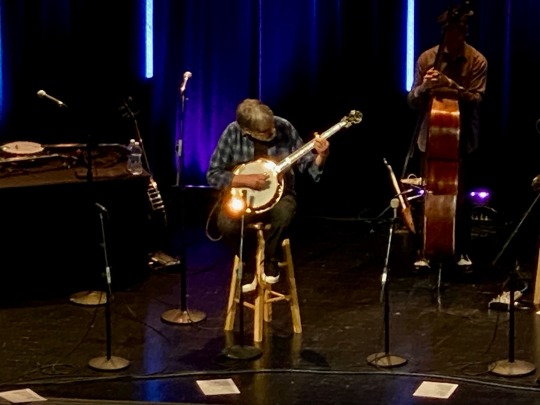
Playing through microphones and without amps or monitors, My Bluegrass Heart was hampered in the first half with Hull and Moses too low in the mix. It wasn’t a fatal condition, but it was noticeable as their solos fought to be audible. What the audience missed was even more evident after everything was all fixed up for the second half.
This hiccup notwithstanding, Fleck’s Bluegrass Heart seems the tone painting of good health.
Grade card: Béla Fleck’s My Bluegrass Heart at Midland Theatre - 3/30/23 - A-
See more photos on Sound Bites’ Facebook page.
3/31/23
#béla fleck#béla fleck and the flecktones#my bluegrass heart#2023 concerts#justin moses#sierra hull#mark schatz#bryan sutton#michael cleveland#bill monroe
1 note
·
View note
Link
https://www.webanjo3.com/
https://www.facebook.com/webanjo3/
https://open.spotify.com/album/2j5ouBQL6NuejKYQ6HlwRx
0 notes
Note
you seem to have really unique and refined taste in a lot of stuff, so im curious, whats your favorite musical artist/group/composer
hello!! and what a compliment--my, thank you!!
i... pulled a few favorites because i'm... incapable of responding to anything briefly :/ here's some beloved artists + my favorite pieces of theirs (i tend generally to lean toward folky stuff, i grew up playing bluegrass on the fiddle--lmao). all's to say--i know it's not for everyone!
george harrison: (specifically this version of) run of the mill, i'd have you anytime, all things must pass
leonard cohen: take this waltz, ain’t no cure for love, tower of song (honestly--though i’d always loved his writing, it took me a while to come around to cohen’s music, but he’s grown on me much recently...)
(obligatory) beatles: long long long, i will, mother nature’s son
(for a change of pace--a little more contemporary) orchestral manoeuvres in the dark: souvenir, so in love, (forever) live and die
#i tend to think my taste in music isn't... great. objectively. but *i* like it you know#i used to say that so often it used to piss off one of my friends so much because she thought all taste was subjective/la de da and once#said 'well what would you say is good music--like objectively--then?' and it took me a second but i said Nat King Cole#asks#elim-flower#anyway. thank you for asking!! i hope you don't mind the bombardment!
7 notes
·
View notes
Note
HOLY SHIT WHAT DO YOU MEAN YOU ARENT FROM THE SOUTH i thought FOR SURE you were from georgia specifically, bc you mentioned macon in a cornstalk fiddle and as someone living there & who’s lived in georgia my whole life it’s So Accurate wtf!!! incredible job not making us a stereotype damn!!! thank you for all the care you put into this work
To be fair, I went to Atlanta once! However, we spent most of our day in the Coke headquarters so I don’t think it should count.
Nevertheless, I did spend 4 years living in Kentucky, so I’m well aware that crossing the Mason-Dixon line does not immediately catapult you into a Flannery O'Connor story. I’m even a little proud of my defiance of stereotype---when I set out to write “Cornstalk Fiddle” I deliberately avoided them, refused to write in dialect, excised anything that felt “folksy.” I wanted a Johnny who plays sets in the local country bar, who has a roommate who’s a nurse and a single mother who married an immigrant; he gives violin lessons to high school students and relies on his beat-up truck to get to gigs, repairs his case with duct tape and met his bandmates because they kept showing up at the same bluegrass festivals. I wanted Johnny to be modern; one of the cool local musicians I knew growing up, except...confronted with the Devil.
(The Devil is, of course, always himself.)
Ironically enough, a lot of “Cornstalk Fiddle” is actually mostly based on my time in Michigan. That’s where I learned to fiddle and square dance. (Partly because my middle school orchestra director also led a fiddling group; partly because Henry Ford was a racist who insisted on teaching square dancing in PE so kids would stop listening to rock and roll.) Michigan was where my friends and I would hang out at the 4-H fair, wandering around to admire lacework and the different chicken breeds and eat elephant ears while listening to bluegrass tunes played by some local band. The nearest city was Ann Arbor, which had a phenomenal music scene, and it filtered out into the nearby towns in private lessons with grad students and garage band-level string quartets. “Cornstalk Fiddle” has a wedding set in Macon---i.e., a “fake country wedding in a barn, all mason jars and strings of Christmas lights wrapped around hay bales”---but that’s a wedding I have been to, seen cluttering up my facebook timeline, geotagged with Michigan, Kentucky, and Illinois too.
So, I’m not a Southerner. But I am intimately familiar with a world where you drive everywhere, where most radio stations are playing country music or Christian rock, where most buildings you drive past are churches, banks, and chain restaurants. And I feel a lot of tenderness for those places---like I said, I grew up among them, and I think very fondly about the people I knew (and know) there; I have immense respect for the lives they lead. That was what I tried to infuse throughout the fic, even if the rest is about theology and also music and maybe wanting to kiss the devil.
#the devil went down to georgia (and then went down on johnny)#Anonymous#I will not speak for people who actually grew up in the south but I think there's a midwestern/southern solidarity#that doesn't get talked about enough#driving from southern michigan up to the UP and driving from cincinnati to southern kentucky is the same experience#the same layers of class division being peeled back; the same vanishing of industry that harmed more than it helped#(auto and steel in michigan; coal and tobacco in kentucky)#even indiana and illinois - gary to south chicago to chicago#the semi-rural semi-suburban midwest is what I know and care about intensely so yeah that's where johnny hangs out
155 notes
·
View notes
Photo

Today we remember the passing of Bill Monroe who Died: September 9, 1996 in Springfield, Tennessee
William Smith Monroe was an American mandolinist, singer, and songwriter, who contributed to the development of the style of music known as bluegrass. Because of this, he is commonly referred to as the "Father of Bluegrass".
Monroe was born on his family's farm near Rosine, Kentucky, the youngest of eight children of James Buchanan "Buck" and Malissa (Vandiver) Monroe. His mother and her brother, Pendleton "Pen" Vandiver, were both musically talented, and Monroe and his family grew up playing and singing at home. Bill was of Scottish and English heritage. Because his older brothers Birch and Charlie already played the fiddle and guitar, Bill Monroe was resigned to playing the less desirable mandolin. He recalled that his brothers insisted he should remove four of the mandolin's eight strings so he would not play too loudly.
In 1929, Monroe moved to Indiana to work at an oil refinery with his brothers Birch and Charlie, and childhood friend and guitarist William "Old Hickory" Hardin. Together with a friend Larry Moore, they formed the "Monroe Brothers", to play at local dances and house parties.
Birch Monroe and Larry Moore soon left the group, and Bill and Charlie carried on as a duo, eventually winning spots performing live on radio stations, first in Indiana and then, sponsored by Texas Crystals, on several radio broadcasts in Shenandoah Iowa, Nebraska, South Carolina and North Carolina from 1934 to 1936. RCA Victor signed the Monroe Brothers to a recording contract in 1936. They scored an immediate hit single with the gospel song "What Would You Give in Exchange For Your Soul?" and ultimately recorded 60 tracks for Victor's Bluebird label between 1936 and 1938.
After the Monroe Brothers disbanded in 1938, Bill Monroe formed The Kentuckians in Little Rock, Arkansas, but the group only lasted for three months. Monroe then left Little Rock for Atlanta, Georgia, to form the first edition of the Blue Grass Boys with singer/guitarist Cleo Davis, fiddler Art Wooten, and bassist Amos Garren. Bill had wanted "Old Hickory" to become one of the original members of his "Blue Grass Boys", however William Hardin had to decline.
In October 1939, Monroe successfully auditioned for a regular spot on the Grand Ole Opry, impressing Opry founder George D. Hay with his energetic performance of Jimmie Rodgers's "Mule Skinner Blues". Monroe recorded that song, along with seven others, at his first solo recording session for RCA Victor in 1940; by this time, the Blue Grass Boys consisted of singer/guitarist Clyde Moody, fiddler Tommy Magness, and bassist Bill Wesbrooks.
While the fast tempos and instrumental virtuosity characteristic of bluegrass music are apparent even on these early tracks, Monroe was still experimenting with the sound of his group. He seldom sang lead vocals on his Victor recordings, often preferring to contribute high tenor harmonies as he had in the Monroe Brothers. A 1945 session for Columbia Records featured an accordion, soon dropped from the band. Most importantly, while Monroe added banjo player David "'Stringbean" Akeman to the Blue Grass Boys in 1942, Akeman played the instrument in a relatively primitive style and was rarely featured in instrumental solos. Monroe's pre-1946 recordings represent a transitional style between the string-band tradition from which he came and the musical innovation to follow.
Monroe's last performance occurred on March 15, 1996. He ended his touring and playing career in April, following a stroke. Monroe died on September 9, 1996, in Springfield, Tennessee, four days before his 85th birthday.
1 note
·
View note
Text
Rendezvous* AU
Jaskier is a professional, usually.
He had worn out all the rough edges of this particular character over the years until it felt almost more comfortable than returning to being Julian at the end of the week. It may have taken a few years to curb his decidedly modern mouth and gain the respect of his fellow re-enactors, but during the open weekend when the visitors poured in? He was always on pointe. Spending the greater portion of an entire weekend in performance, in character-- it exhilarates him. The joy from the visitors, their laughs and surprise and unprepared blushes when he singles them out for a bit. If he could, he would eat it and live on it forever.
Except, well, a man has to eat real food as well, and Jaskier had skipped breakfast in his rush. Normally, that wouldn’t be a problem. This particular Rendezvous at Alafia River always has more bakers, potato roasters, and poorly disguised Highland Games food carts peddling fish and chips than one could shake a stick at. Jaskier had simply followed his nose. It wouldn’t be a problem...
Except the baker is the most attractive man Jaskier has ever clapped eyes on.
“Essi, Essi, Essi,” he chants. “Essi, you’ve- I swear, if you don’t turn around-”
“Jaskier, for god’s sake,” Essi hisses, sandwiched between a wooden stall and the shielding curtain of his body where she is attempting to subtly adjust her slipping décolletage. “I’m a little busy.”
“Not too busy for this! Essi,” he whines. A hand smacks his arm, hard.
“I’m not getting thrown from the Voo over a nip slip you f--forking child,” she grumbles into her cleavage. That adjusted, she nudges his shoulder out of the way. “Now, what are you whining about?” She looks, as usual, gorgeous, even with the momentary fashion crisis. No one looks better in crisp white chemise and dusty rose robe anglaise in linen. Well, except-
“Him.”
***
(*A Rendezvous is a historical reenactment/ living history event that may last an entire extended weekend, an entire week, 9 days. Participants camp on-site in pre-1860s period clothing, using as much historically accurate gear as possible and disguising any absolutely necessary modern amenities to keep from breaking immersion. Sometimes, the last weekend of the event is open to the public non-participants to wander through, purchase from artisans and craftsmen, often including folks from local tribes, and enjoy the musical or martial performances, historic rifle ranges, archery, delicious food, hatchet throwing, and more.
This encounter may or may not be inspired by a memorable Rendezvous encounter as a visitor.)
Jaskier has never in six years seen this particular baker at this particular Rendezvous. Would that I had, he thinks somewhat wildly.
It’s not one thing, really, that catches his attention, which sometimes does happen. He has fallen in love with a stranger’s heavy-lidded eyes, or a singular profile, or even the way someone tucked their legs up under them in a library chair.
It is the way his pale, silvery hair wisps and half-curls around his face and across his forehead, where heavy brows furrowed in concentration. It is the shocking softness of his mouth compared to the granite cut of his jaw and the roughness of his stubble. It is his hands. Jaskier thinks they might be the most beautiful hands he has ever seen. The strength, the gentleness, the competence with which they folded and kneaded, then with swift, short turns tucked the dough into a boule to add to the nearly filled board behind him.
Jaskier isn’t the only one watching. The man, whether it be what Jaskier sees or the smell of his already-baked loaves, has drawn a crowd. (And he really does suspect it is a mixture of both. No one should look so good with the sweaty, unwashed Rendezvous look. Most people look as you might expect after a week-long historical camping trip. This man looks like a rugged wet dream.)
Even as Jaskier looks, the baker slices the top of the dough with a slender knife frankly dwarfed in his grip, settles the boule on the board, and with a sharp flick of his elbow slides the whole dozen of them into the mouth of the clay dome oven radiating heat at his back. Even presented with the man’s astonishing back (and astonishing backside, lord, blessed be the fall-front trousers)--even then, Jaskier finds he can’t stop staring at his forearms, revealed by his rolled shirtsleeves.
“Oh, you’ve got it bad,” Essi murmurs, and laughs when he jumps. “Well, go on. Go buy your bread and flirt with him. I’m going to get chowder from the fish and chip tent.”
“But- Essi,” Jaskier flounders, “we, it- the performance!” They had planned to spend the last couple hours of morning trolling the main drag and the surrounding lines of tents and stalls, singing and playing, he on accordion and she the violin. They even have a couple new bits he is dying to run through. Jaskier thinks of his wallet and all the tips they might be making even now and whines. That being said, his eyes draw back to the dimple along the muscle of the baker’s forearm without his permission. Essi pats his back mockingly.
“Frankly, my dear, I refuse to perform with you like this.”
“Excuse me! Like what?”
She doesn’t deign answer. Instead, with a wink, she steps back into the crowd, calling, “I’ll meet you at the Live Oak Stage for the noontime performances!” and leaves him there.
Which is also when Jaskier hears the first keening notes of a familiar song. He already knows he is ruined before turns to take in the scene-- the baker with the fiddle pressed under his chin, the bow so delicate in his blunt-fingered hand that Jaskier’s heart leapt into his throat. The angle of his wrist, the tilt of his brows--
then he glances up through unexpectedly dark lashes and his amber eyes flash golden in the light.
“Oh, Jesus wept.”
*
As it would turn out, the handsome baker’s name is Geralt, and his rendition of Tiersen’s sur le fil is so beautiful that Jaskier can’t help but draw closer, like a moth to flame.
As it also turns out, the baker whose name is Geralt lowers the well-worn but immaculately tuned fiddle after the one song, allowing Jaskier to step close enough to embarrass himself. He gets half way through a too-long ramble about Tiersen’s works and praise for the man’s performance, and I’m a musician myself, can’t often be convinced to pick up a fiddle but-- when the baker grunts, points to the not-exactly historically accurate but not-not period appropriate accordion in his hands and asks, “Do you know La Noyée?” Which is how they end up playing together for the next thirty minutes until the bread has baked.
Which is also when Geralt introduces himself and gruffly thanks him, mentioning how his assistant usually accompanies him but he gave her the morning off, and then pays him in bread with a healthy slab of butter and aged cheese on top. Jaskier learns quickly that he is a man of few words. Somehow, however, he can read the sincerity in his thanks in his minute expression. They had drawn in quite a crowd, and Geralt is quickly made busy on the next batch of orders.
Jaskier knows when his presence is in the way. He is a little sad to go, but still, he knows he will be buzzing with the energy of their performance and the electric current that had passed between them every time Geralt glanced his way to time his accompaniment or signal a flourish. That can be enough. “Well, it’s been- ah, absolutely lovely playing with you, dear Geralt, but it seems I will only be in the way from this point- can’t bake to save my life, I’m afraid-” as he begins to slip away.
“Bard.” Jaskier freezes, surprised. Geralt cleans his hands off on his equally floury apron and pulls a tiny folded up pamphlet from inside its deep pocket. Jaskier takes it without thinking, on autopilot. “I’m part of a demonstration around 2, over at the fencing pit next to the musket range.” Jaskier can’t be blamed for how long it takes his brain to catch up with the unspoken invitation; but when he does, he beams.
He goes, and is promptly bowled over to find Geralt changed from his frankly too-flattering baker’s smock and fall-fronts into the traditional kilt and shirt sleeves of a highland foot soldier-- sans coat. Jaskier sees why when he lunges forward into a fast-paced mock battle with a broad sword that he slings about as if it were light as a rapier. Jaskier is... he needs to sit down.
He spends the rest of the weekend finding every excuse he can to go visit Geralt the too-handsome baker, and gets to meet his apprentice, who is also his daughter. Jaskier is stricken dumb for all of two seconds before he realizes they get on like a house on fire. Geralt has to chase them off when their chatter on historic social norms, musical trends, and current pop stars gets to be too much. Then they both have lunch with Essi, and the conversation turns to hsitoric fashion, materials, and ends with the two ladies roasting his poor man dandy outfit alive. He stands up for himself nobly. The high waisted trousers make him look trim! And braces were designed in the early 1820s, just like the accordion, thank you! Yes, he DOES know that it is considered terribly risque for his braces to be visible and not worn beneath a coat, why do they think he did it? No, he doesn’t think that they clash with his silk cravat in the least! He might be a rake and a rogue but he is still cultured. And well bathed, unlike most of the brutes around here! Essi calls him a floozy; Ciri, 16 and the least shy girl he has ever met, agrees. (He loves the two of them all the more by the end of it.)
Jaskier plays with Geralt a couple more times, after Essi gives him her blessing. She had found a bluegrass group in desperate need of a violinist after theirs abruptly came down ill, and she is more than happy to flirt with their cellist there, especially since they pop up stage in the middle of the Rendyvoo garners huge crowds of tip-happy listeners. She does chat with Ciri when she stops by, however, and Geralt. Jaskier doesn’t hear what happens, but she manages to get the big man to flush. Jaskier wonders on it for the rest of the day. Will she reveal her secrets??
The Voo ends and Jaskier is a besotted wreck. He tries quite hard to make his goodbye to father and daughter not the least bit tearful-- and immediately fails when Geralt pulls out a smartphone and gruffly tells him to put his number in.
They live much closer than they might have assumed. I can’t decide if Geralt really does own a bakery, or if that’s just his somewhat secret hobby and in reality his profession better matches his dangerous strongman persona-- a garage, a historic fencing and swordplay gym, perhaps a high-paid security professional. All of them have some interesting possibilities, I’ll be honest. Regardless, working Rendezvous’s and ren faires is half hobby half side-profession. Jaskier is thrilled to find that, since moving to the area recently, he and Geralt will be working a lot of the same events. He is excited a completely normal amount.
Y’all know what’s up. Wooing. Courting. Two idiots who don’t recognize their emotions (because, yes, Jaskier might have realized Geralt is a looker, but it takes him much longer to realize what the fuzzy feeling in his gut is whenever Geralt is particularly soft, or speaks gently to his daughter, or smile when their huge great dane comes barreling out to greet them and oh, no.) Also, historic costumes that just, they just really inspire some thirst.
If y’all think for a moment Geralt looks any less handsome in modern clothes, you are surely mistaken. Jaskier despairs the first time he sees him. It’s just... it’s not fair!
Except the local ren faire comes around and it’s Geralt’s turn to despair. He may, in fact, never recover. Y’all know that post that’s been going around...
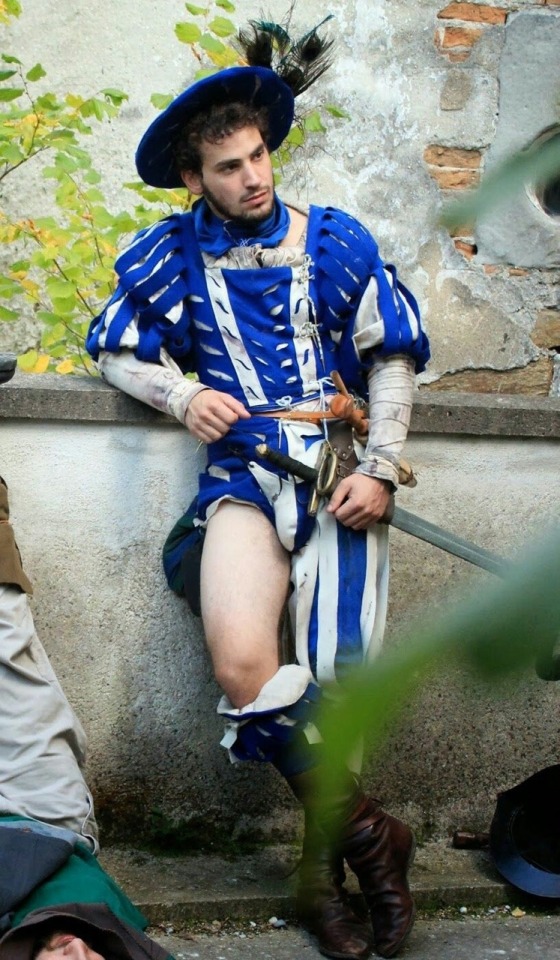
ok fin. that’s all i got, i hope yall enjoyed.
#the witcher#fanfic#geraskier#taran writes#historical reenactment AU#yes there was a real baker who was real handsome#he pulled out the accordion and his assistant the fiddle and played a yann tiersen song i can't remember the name of but recognize every tim#and my gay little heart went OH#do i want to be you or are you just fantastic?#jokes on you baby taran#the answer was both
33 notes
·
View notes
Photo
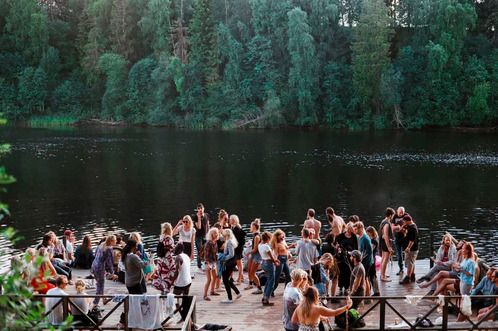
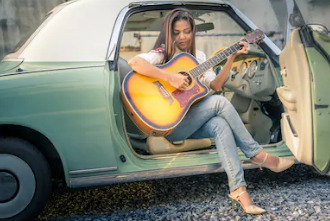
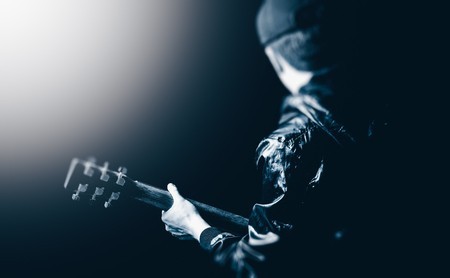

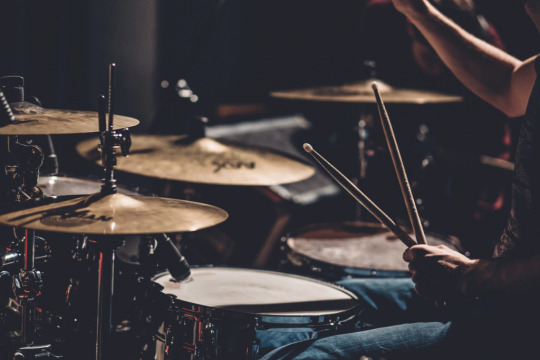
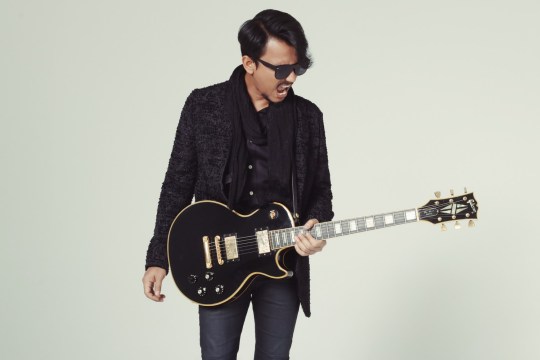
Instead of doing replies, here’s this massive hc post that nobody needed or wanted lmao ayyy
Seoul Hanoi'd
Genre: The Wikipedia page describes them as an indie rock alt-rock group, with the genres listed under the main box being indie rock, alternative rock, and some forrays into indietronica.
The group is described as genre-bending, as they will stick mainly with an indie rock vibe/folk punk (think violent femmes with that term), but they’ll pull elements from a wide range of genres. Seoul Hanoi’d is made up of singers and musicians whose wheelhouses include jazz, country/bluegrass/Americana, folk rock, indie rock, glam rock, garage rock revival, pop rock, classical, traditional Eastern, and R&B, so it isn’t unusual for a song to feature a cleverly placed jazzy bass throughout (like Ladies’ Code, Galaxy) or a mandolin.
Background: Seoul Hanoi’d was founded in 2010 when a “joke in a conversation” between American-Cambodian singer, song-writer, and musician Franny Sor Robinson and Scottish drummer Max Jin-ho Cho came to life. The group currently consists of ethnic Korean, Vietnamese, Bhutanese, Cambodian, Lao, Hmong, Malaysian, Indonesian, Mongolian, Kazakh, Chinese, Nepalese, and Thai diaspora who rotate out for live shows as their schedules permit. All members of Seoul Hanoi’d have either their own solo music careers, or are primarily involved in acting, or have a primary band they are active in. There are four founding members and eight other members, totaling twelve. In addition to the twelve official members of Seoul Hanoi’d, other guest musicians have played with them when none of the twelve in the official lineup could fill a role.
The "core” members are almost all at every performance. Of the core members, Franny is absent the most because of her wildly busy schedule. She has a hand in composing almost every original song, arranging most of the covers, writing a huge chunk of their lyrics, and is the common thread between most of the other musicians, so she is considered the leader of the group.
The band has won Grammy Awards, and since many of the band members are British they’ve won awards in Britain too, and because of the two Canadian members they’ve been nominated for awards in Canada. The band is labeled British-American-Canadian on the Wikipedia page. Though, one member is from Australia, and one from New Zealand. They joke that since Canada, the US, and UK all have at least two members, they get to be on the Wikipedia page.They have been given numerous honors from various Asian cultural organizations in The United States, United Kingdom, Ireland, Australia, France, New Zealand, and Canada.
Because of Seoul Hanoi’d’s unique structure, any touring is done in small legs and there’s usually a live lineup switcheroo from leg to leg. The band has a massive online following -- even when they don’t do live shows for a while they pump out content on their YouTube channel including covers, performances of their original content, charity livestreams, Learn [Language] with [Member], and occasional vlogs where the members teach you about their culture(s) by showing the viewer around a cultural festival or a traditional wedding or something.
Founding members: Franny Sor Robinson (Cambodian-American), Vanessa Pham (Vietnamese-American folk indie singer-songwriter and guitarist), Max Jin-ho Cho (Korean-Scottish singer-songwriter, drummer, and pianist), Mary Xiong (Hmong-American indie rock singer and musician)
Other members: Pangfoua Zangkai (Hmong-Canadian actress, singer, and guitarist), Lawrence Hardjono (Indonesian-Australian bassist, lyricist, singer), Roslan Ali (Malaysian-New Zealand glam/indie rock singer, director, musician, song-writer, and author), Souksakhone “Holly” Rasavong (Laotian-Canadian pianist/keyboardist, composer, producer, drummer), Aisulu Niyazova-Li (Kazakh-Chinese-English actress, singer, and musician), Jodie Batbayar (Mongolian-English musician, singer, violinist, activist, and producer), Andrew “Andy” Chaiyaporn (Thai-American drummer, guitarist, singer, and violinist), Hannah Sadutsang (Nepalese-Bhutanese-English musician, lyricist)
Main singer on album recordings: Franny Sor Robinson, songs v personal to the other singers are sometimes recorded by them, the main male vocalist is Roslan Ali
Main singer live: Generally Franny Robinson for Europe shows, but of the core members she’s absent most and in her absence Aisulu Niyazova-Li, Vanessa Pham, or Mary Xiong typically will take lead
Core live members: Franny Robinson (singer, main lyricist), Max Cho (drummer),Vanessa Pham (backing vocals, lead guitar), Pangfoua Zangkai (rhythm guitar, harmony lines), Roslan Ali (main male vocalist, lyricist, assorted instruments, directs most music videos), Lawrence Hardjono (bassist), Holly Rasavong (piano, keyboard), Andy Chaiyaporn (violinist, stringed instrument god)
Most common live substitutes:
Franny Robinson (singer) may be replaced with Aisulu Niyazova-Li, Vanessa Pham, or Mary Xiong
Max Cho (drummer) may be replaced with Andy Chaiyaporn who is usually in charge of string instruments or Holly Rasavong
Andy Chaiyaporn (string god) can be replaced with Jodie Batbayar
Vanessa Pham (lead guitar, backing vocals) can be replaced with Mary Xiong, Aisulu Niyazova-Li, or Jodie Batbayar
Pangfoua Zangkai (rhythm guitar, some harmonies) can be replaced with Hannah Sadutsang or Mary Xiong
Roslan Ali (male singer, various instruments) can be replaced with Andy Chaiyaporn, or Lawrence Hardjono will sing and play bass
Lawrence Hardjono (bassist) can be replaced with Mary Xiong, Aisulu Niyazova-Li, Jodie Batbayar, or Hannah Sadutsang
Holly Rasavong (piano, keyboard) can be replaced by Hannah Sadutsang, Jodie Batbayar, or Aisulu Niyazova-Li
Connections:
Franny was friends with all of the members individually before most of them knew each other, Franny is the common thread.
Vanessa Pham is an American solo artist that Franny went to NYU with
Max Jin-ho Cho is a Scottish drummer, pianist, and singer that Franny met during a song-writing session with a mutual friend who is in Max’s main band, a Scottish rock band called Glasgow Gravedigger Society
Mary Xiong is the frontwoman of an American glam rock band called Borrowing Sally’s Mascara that Franny met when they performed at the same music festival that Daniel Maitland’s main band was (an alternative female-fronted rock band called Venus and The Flytraps; he’s the other half of the bluegrass/indie country/americana duo Dara & Danny that Franny does) and Franny was there to support him, and a mutual friend introduced them to Mary
Pangfoua Zangkai is a Canadian actress that Franny met in 2008 when they were actually co-starring in an indie comedy movie directed by a mutual friend. The film was about two first-generation American women nearing the end of their final year of university, and deals with the pressure children of immigrant parents often deal with regarding their families hopes and dreams, and the feelings of not feeling American “enough” and not feeling Hmong or Cambodian “enough” through a comedic lens. The film won several awards from different organizations in the West meant to promote Asian/Southeast Asian culture and art, and has become pretty important to many people in Southeast Asian diaspora groups. Pangfoua is primarily an actress, but can sing and play guitar.
Lawrence Hardjono is an Australian singer and musician who is mostly known for his solo career primarily across Australia, New Zealand, and in his parents’ native Indonesia. Franny met him when they were both speakers at a Southeast Asian cultural event in Australia
Roslan Ali is a New Zealand rock singer, musician, and author that had been friends with Lawrence Hardjono for a while. He fronts an all Asian-New Zealander and Maori band called Kiwaisa Pacific
Holly Rasavong is a Canadian musician and producer that has produced several of Venus and The Flytraps’ albums, so she’s someone else that Franny met through her connection to Daniel Maitland.
Aisulu Niyazova-Li is one of the youngest members of Seoul Hanoi’d, at twenty-nine. She is an English actress, singer, and musician that Franny met when Aisulu reached out to Franny via her publicist about coming to speak at her (Aisulu’s) university. Aisulu was the president of the Asian Student Union at the time. Franny thought Aisulu was pretty damn great and kept in touch with her, even hooking her up with an audition for a record label. She has a solo R&B singing career under the name Niya Li.
Jodie Batbayar is an English singer, violinist, and activist most known for her violin skill. She can play classical style and fiddle style. She met Franny when the two of them were speaking at an event about Asian women’s empowerment
Andrew “Andy” Chaiyaporn is an American drummer, guitarist, singer, and violinist. He typically plays violin in an American indie folk band called Maggie Creek, named after a stream in his native Nevada. He met Franny through a Facebook group for Southeast Asian-American creatives.
Hannah Sadutsang is English musician and lyricist most famous for writing the lyrics for many popular songs in the UK. Hannah is actually the youngest and most recent official member of Seoul Hanoi’d. She’s a former student of Franny Robinson’s at Pride University.
Inspiration playlist: Link
Seoul Hanoi’d experiments with both live instruments and some elements of electronic music, but it’s always meant to accompany live instrumentation.
They have an entire album that’s explicitly political, aptly named The Political One, and a couple other songs subtly so.
Awards, iconic performances, etc:
Seoul Hanoi’d has won Grammys
Main songwriter, Franny Sor Robinson, was inducted into the Songwriters Hall of Fame in 2019 at the age of thirty-nine
Their Glastonbury 2016 performance, fronted by Franny Sor Robinson, has been heralded as one of the best live shows of the Festival in the last decade
Seoul Hanoi’d has performed at SXSW almost every year since 2013
They have been invited to perform in Cambodia, Vietnam, Laos, Thailand, Mongolia, Bhutan, Korea, Nepal, Malaysia, and Indonesia by important figures either in entertainment or government to thank them for promoting and educating about their various cultures abroad
#&&...hc#// up next imma do a post for dara & danny and for franny's work in jazz and songwriting for other singers
3 notes
·
View notes
Text
Hello Central, Give Me Heaven
Hello Central, give me Heaven
For I know my mother’s there…
And you’ll find her with the angels
Over on the golden stair...
How did Bluegrass get a hold on a clan of middle class Scottish Presbyterians in rural Quebec during the 1950s? I’ve long wondered why my brothers and I, my son, a sprinkling of nephews and now my two granddaughters — the eldest who is aiming for a science degree at university — fell under its high lonesome spell.
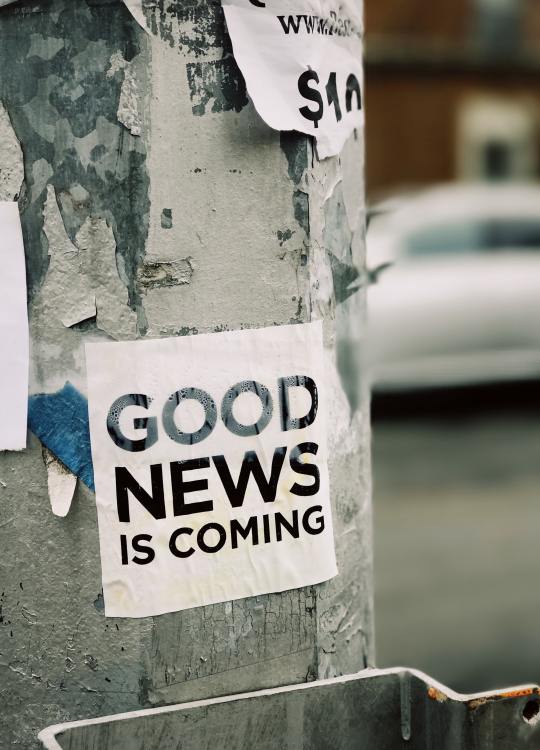
I can’t speak for my brothers, but Bluegrass has been a godsend for this repressed black sheep girl-child growing up in the miasma of “Father Knows Best” and “I Love Lucy”. Where else could I safely wallow in lyrics such as …Get that dust off the Bible and redeem your poor, poor soul. Plus Bluegrass brings death to the conversation with every breath, something that White Anglo Saxon Protestants prefer to ignore until far too late. I’ve always admired those who address elephants in the room. Go tell that ball room lady/ All dressed in worldly pride/ That death’s dark train is coming/ Prepare to take a ride.
Before the Hamilton clan met Bluegrass, however, came the rock n’ roll revolution. My hormones exploded. Hello Bill Hayley, Chuck Berry and Jerry Lee Lewis! In a tossing sea of ponytails and tinkling charm bracelets I shrieked at Elvis during “Jailhouse Rock" in Ottawa’s jam-packed Capitol Theatre. Goodbye to music charts topped by crooners Perry Como and Doris Day. Farewell to Dad’s stack of blues and jazz records: Billie Holiday, Cab Calloway and Woody Herman.
My girlfriend Joanie and I jived in our living room caroling: …we’re gonna rock, rock, rock till ba-rod daylight… Mum observed, her face a blank. Our two hounds rose from their snooze and left the room. Upstairs my older brother, Ian, a Johnny Cash wannabe, whaled on his guitar, moaning “…his earthly race is over and the curtains round him fall, We’ll carry him home to Dixie on the Wabash Cannonball.” Then there was Dad, quite likely downstairs soaking up a chunky stack of 78 rpms. I can see him now, a long leg cocked over one arm of his favourite chair, rustling through the newspaper to Glenn Miller’s “Tuxedo Junction”: Feelin’ low, rockin’ slow, I want to go right back where I belong…
My father had a 4-string Silver Belle banjo which he never played. He was sheepish about it; said he’d only played when he was courting Mum. He wore a straw boater then and a bow-tie too. “Well, it worked” he said, waggling his hands like some vaudeville gigolo.
My younger brother, Derek, showed no musical leanings whatever until the day he vanished into his room with the Silver Belle and a Pete Seeger record on learning the banjo. He taped “Do Not Enter” to his door and was incommunicado for six months. My friend Jane still remembers listening to him struggle through “Darling Cory” played to a dangling phone receiver.
“No wait — I gotta start again. Wait! Listen to this!”
But one day he emerged, purchased a 5-string long necked banjo and wowed us all with his Scruggs 3-finger picking style.
Our friends were soaking up Bob Dylan, Joan Baez or The Brothers Four, but we fell like miserable sinners, my brothers and I, to the down-home delivery and heartache harmonies of Bluegrass. We gloried in graves in the valley, Memphis trains, bootleg likker, burdens and lonesome souls. We worshipped like hungry hounds at the feet of Bill Munroe, The Greenbriar Boys and Flat and Scruggs. We need a whole lot more a’ Jesus and a lot less rock n’ roll.
My mother, whose middle name was Cultured, did her best to steer us right. Had she been a Bluegrass lover, she would have played Vince Gill singing Come to Jesus today, let him show you the way/ You’re drifting too far from the shore… Instead she put Beethoven or Mozart on our stereo player, then served up bacon and eggs to my brothers and I at our glossy dining room table. Morning sun spattered rainbows from glass prisms in a girandole on the sideboard while we sat like lumps, barely awake. We rolled our eyes.
My Presbyterian ancestors I suspect viewed all emotions with narrowed eyes. The notion of long-gone generations of Elizabeths and Johns stomping along to “Foggy Mountain Breakdown” or “Rollin’ In My Sweet Baby’s Arms” seems a stretch. Yet according to many sources, including Bluegrass aficionado Pastor Fred Martie of Missouri’s KJAB 88.3 Christian Radio, that soulful Bluegrass energy lurks in my DNA. The Irish and Scots who came to America in the 1600s brought the roots of Bluegrass with them. So did the African American slaves. Over centuries the two traditions entwined, evolved, but it took Kentuckian Bill Munroe’s musical genius to braid those tangled roots into Bluegrass. In 1939, he swerved away from traditional country music with his group The Bluegrass Boys. They sang hard-driven harmonies accompanied by mandolin, banjo, fiddle, guitar and bass. When Earl Scruggs joined the band in 1945 with his innovative banjo-picking, classic Bluegrass was born.
I am now pushing 80 and Bluegrass still rambles round my soul. I’m a long-gone Christian, lapsed dabbler in Hinduism, a Buddhist groupie and a traveller in Western mysteries plus friend to Tarot archetypes (call me The Fool) along with a heavenly host of gods, goddesses and deities.
Like Walt Whitman, I am large; I contain multitudes.
I’ve had epiphanies and train wrecks with all of it. Yet running like a mountain echo throughout has been Bluegrass, especially the gospel tunes. There’s nothing like it to soothe this wandering soul: …Sometimes it’s dark, sometimes you’ll swear you’re blind/ But I believe that we'll be all right/ As long as you keep on/ Lookin’ for the light.
Or as some Bluegrass tenor named Slim or maybe Doc nailed it: I’m just a pilgrim on this road, boy,/ This ain’t never been my home.
1 note
·
View note
Note
"#just because you have a bias about certain socioeconomic groups which tend to listen to country doesn't mean" // Yup. I tend to side-eye folks who are like "I like all kinds of music except country and [Insert a genre of music usually associated with Black creators like rap and hip hop]" You're not slick, ppl. I know what you're saying.
^^^^^^^^^ You hit the nail on the head.
It’s racial bias. It’s socioeconomic bias. It’s bias against people groups who have less respect and say in society.
From my tags on this post:
#don’t get me started on a long rant of the progressive side of country music and what’s been progressive FOR DECADES#from times near its BEGINNInGS#through the modern age#just because you have a bias about certain socioeconomic groups which tend to listen to country doesn’t mean#that that’s actually what the genre is or who the artists are#I could go for a LONNNNG time about this#a LONG time#some of the best protest songs I know of today’s current political situation#are country#or have like ya’ll forgotten about the folk revival#of the 1960s#or…#gahghfnfddhgnghfngh#I AM GAY AND I LISTEN TO COUNTRY#NYEH!!!!
Now. I understand disinterest in a genre because it’s not your aesthetic, but when people express their feelings for country, R&B, hip-hop, etc. …the dialogue isn’t casual “It’s not my thing.” The dialogue is a hateful, passionate retaliation.
Other genres aren’t treated like this. It’s normalized and encouraged to hate on country and rap. These genres are systematically treated with less respect and that disrespect culturally arose because these genres are associated with less-respected demographics.
(Country music is associated with people of low socioeconomic status, for people who aren’t explicitly aware.)
Anecdotally: I’ve caught something interesting about anti-country music sentiment. Many people tell me they can’t stand the “twang.” Half the time, I’ve noticed that their internalized definition of “twang” isn’t the vocal technique; it’s that they can’t stand the presence of a Southern accent. And hooboy does that have TONS of sociocultural bias issues. As a linguist, I’ve read endless sociolinguistic studies about how Southern dialects are treated as “lesser,” and how speakers of the dialect are automatically judged to be less intelligent, etc. It’s not good, folks.
Sometimes, to help friends get out of their anti-country mindset, I’ve “tricked” them into liking country. See, genres like bluegrass grew closely out of Scots-Irish folk music. Often, we’re playing the same tunes on both sides of the Atlantic. So I play a few instrumentals, my friend goes, “Oh! I love Celtic music
The biases against those demographics color how people view the music. There’s endless things that can be said about hip-hop bias, holy shit. I won’t focus on that today because I don’t believe I am qualified to be a spokesman. Someone who understands that genre better, and other genres associated with the African-American community, and is African-American, would be a better human to listen to than me. I defer to their knowledge and experience. It’s hella important to understand what bias has been reflected against those genres.
But there’s just as much bias against country music, against another demographic. And I’ve found it wild how it gets treated on places like tumblr, which wants to stand up for underprivileged groups, but somewhat inaccurately associates country music as “anti-gay conservative evil white person music” rather than music of people historically of lower socioeconomic status.
Yes, some of the demographic that listens to country music or plays country music are bad apples. But like… thinking the music is JUST THAT is a huge disservice to what country actually is and who the music artists actually are.
The history of country music is one giant collaborative melting pot of people from many different cultural backgrounds. Broad West African influence. Mexican influence. Italian influence. German influence. Scots-Irish influence. Cherokee influence. More. Early record labels like OKEH foolishly separated “hillbilly music” (presumably white folk music) from “rhythm and blues” (presumably Black folk music) without understanding the constant racial, demographic, regional, and cultural cross-pollination that occurred between the musicians from country music’s origins. And while there ARE certain issues in country music’s past and present, and we can’t let those issues go forgotten, that’s far from the whole story. We shouldn’t romanticize issues, but we should acknowledge that this music genre has given us major strides too.
Country music is the banjo, brought from Africa, combined with the mandolin, brought from Italy, combined with the fiddle, brought from Ireland, combined with the guitar and the dobro and the accordion and the upright bass and the electric guitar and the electric bass and whatever instruments you want to put in there.
Country music is African-American musicians like DeFord Bailey, the first radio star ever introduced on the Grand Ole Opry (THE most revered country music hub out there), blues harmonica performer, playing to crowds decades before segregation was de-legalized. He toured with white Opry musicians who treated him as one of their own. It’s soul music genre pioneer Ray Charles producing a studio album entirely dedicated to country music hits like “Hey Good Lookin’” from Hank Williams. It’s country star Charley Pride, who despite the racism against him in the 1960s rose to fame and made audiences fall in love with his beautiful voice. It’s the African-American musicians who inspired many commercial country stars, like Arnold Shultz influencing Bill Monroe and the railroad workers inspiring Jimmie Rodgers.
Country music is stars like Johnny Rodriguez and Rick Treviño, singing country music in Spanish, and using obvious Latin flavors in the genre.
Country music is filled with badass women like the ladies who STARTED THE GENRE ROLLING IN THE FIRST PLACE, Sara Carter and Mother Maybelle Carter (whose guitar style is hugely influential to this day) and Maybelle’s daughters Helen, June, and Anita; the first female music manager in the music industry, Louise Scruggs; songwriters like Felice Bryant and Loretta Lynn; the most awarded female artist in Grammy history Alison Krauss; and powerhouses like Dolly Parton who stepped out of an over-controlling entertainer’s shadow to become a badass in all things like supporting the LGBTQ community, contributing to pro-transgender films ahead of their time, and starring in sex worker positive productions like “The Best Little Whorehouse in Texas.”
Country music is filled with activism. Johnny Cash showed a heart for those forgotten by society. He toured many times in prisons. Cash especially was an activist for Native American rights. He toured with Native American songwriters so audiences could hear their own words (I’ve been trying to find names but I’m having difficulties re-finding that information, so my apologies for not giving names of those who deserve to be mentioned). Cash released albums dedicated to exposing past and present injustices against the Native American people. He went on tours specifically to Native American reservations.
And it’s not just Johnny Cash!
Country music is many stars from the Grand Ole Opry banding together to release AIDS benefit albums - big names like Alison Krauss, Willie Nelson, Marty Stuart, aurgh I’m too lazy to write them all, PEOPLE.
Country music is Earl Scruggs and his sons playing at the Vietnam War Protests.
Country music is tied in with the fucking folk revival of the 1960s, which was deep in left-wing activism and the Civil Rights Movement. Folk singers sang traditional Appalachian and English ballads alongside their own compositions, topical pieces protesting the current political situation. You can call one artist “folk” or “Americana” and another one “country,” but the influences were intermingling, and it’s why we have Bob Dylan and Woody Guthrie and Joan Baez and John Denver and Pete Seeger owning a banjo that says, “This machine surrounds hate and forces it to surrender.”
Dammit, I have a full BOOK that discusses country music and political ties.
There’s another book out there, which I haven’t read, that discusses the relationship between country music and the queer community, and how bias against country music is NOT as reflective of the listening demographic as we stereotype. I’ll take the word of one reviewer who said:
[Nadine Hubbs] explores country music lyrics, presenting a great deal of evidence suggesting that working class America is not inherently homophobic, but that as middle class cultural taste has changed to include formal acceptance of homosexuality, this process has included pinning homophobic ideas on the working class.
Country music is lyrics like this 1975 controversial song “The Pill”:
You wined me and dined meWhen I was your girlPromised if I’d be your wifeYou’d show me the worldBut all I’ve seen of this old worldIs a bed and a doctor billI’m tearing down your brooder house‘Cause now I’ve got the pillAll these years I’ve stayed at homeWhile you had all your funAnd every year that’s gone byAnother baby’s comeThere’s a-gonna be some changes madeRight here on nursery hillYou’ve set this chicken your last time‘Cause now I’ve got the pill
Country music is lyrics like this 2013 song that feels as relevant than ever:
If crooks are in charge, should we let them pick our pockets?If we don’t want trouble, should we not try to stop it?We could just sink into the quicksand slavery we’re born inBut fighting endless wars for greedy liars is getting pretty boringThey think they got us trained, so we’ll think we’re living freeIf we got time and money for junk food and TVBut it’s plain honest people never stand a chance of winning electionsThey just let us pick which liars take our rights away for our own protectionThe corporate propaganda paralyzes us with fearDestroying our ability to trustFear keeps us fighting with each other over scrapsStarving to death in the dustOrganized religion really helps you submitBut the meek are inheriting the short end of the stickFear surrounds compassion like a layer of moldAnd weakens our defenses so we’re too weak to be boldLife could be heaven, but this corrupted systemTakes away our rights, expects us not to miss themThe middle class is shrinking while the lower class growsIf we don’t wake up soon, we’ll have no class left to lose
Country music is Christians themselves criticizing the hypocritical Evangelical culture in the USA for the bullshit hatefulness stewing inside it:
Every house has got a Bible and a loaded gunWe got preachers and politicians‘Round here it’s kinda hard to tell which oneIs gonna do more talkin’ with a crooked tongue
And as that one post I just reblogged shows, there’s MANY queer country musicians out there producing explicitly pro-LGBTQ+ music.
I’m brushing over so much. I’m sorry for the simplification that goes with me doing such a pass-by overview. I’m sorry I’m focusing more on history than the present (I know more about the 1920s-1960s eras, so I’m talking from my strong suit). I hope the information is at least strong enough to get my point across.
There are definitely listeners and artists in country music who are uber-conservative white hateful Christians. Yes. I know why country music gets associated with that. But.
Country music is not ABOUT this uber-conservative white hateful Christian side. The genre is not “polluted”. It is a thousand voices from a thousand perspectives of people from many backgrounds and beliefs. And many of those thousand voices are old traditional songs that came from Black communities, or were composed by Mexican-Americans, or were performed by folk artists as part of a protest for equal rights.
(Note: I’m *NOT* saying all Christians are bad or that different political angles don’t have merits. I’m Christian myself! And you don’t know my political party. I’m just trying to get the point across that country music isn’t ENTRENCHED in one questionable demographic.)
You don’t have to like country music. It doesn’t have to be your aesthetic. But if you find it fun to get in on society’s popular country hate roasting… please rethink this. The reason country music has been hated from its roots is because it’s associated with the socioeconomically disadvantaged.
I’m with you 100%, Ashley. When someone says they like all genres “except country music and rap,” I get a little leery. I used to be one of those people when I was younger. I had to learn to grow past those biases. But once I did, I realized there was so much I was hating on that I didn’t understand. Now, I hope I can help people overcome their own biases, such as ones they don’t realize they’ve had - for things like music.
Hi ya’lls. I’m queer and I love country.
P.S. If anyone has anything to add or correct, please feel free to add on! I’m doing my best but I do not know everything and would be happy to learn more, too!
#ashleybenlove#long post#music#non-dragons#that banjo business#analysis#my analysis#music analysis#note that there's a version of this post where it's been reblogged and added on and I chat about Elvis and stuff#but the starting text is from an earlier version of this post#where I had a number of typos#XD I know they're there but I can't change those hahahahaha#I changed them here#reblog whichever version you desire though of course!#but just so you know there's a few minor factual typos in the non-edited version#I was hahaha so excited that I typed fast when I wrote it XD
90 notes
·
View notes
Text

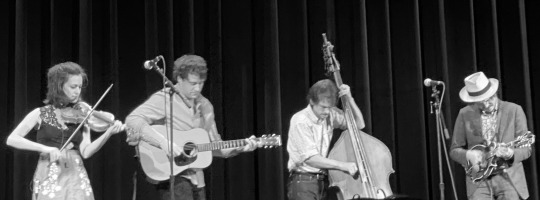







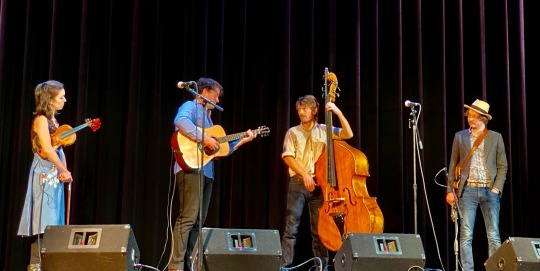
Hawktail at Holland Theatre; Bellefontaine, Ohio; Jan. 21, 2023
Hawktail is a genre as much as it is a musical group.
From the seats, the band - Crooked Still’s Brittany Haas on fiddle, guitarist Jordan Tice, Punch Brother Paul Kowert on bass and mandolinist Dominick Leslie - looks like a bluegrass quartet.
But then it starts to play …
Night No. 2 of Hawktail’s Place of Growth tour landed Jan. 21 in Bellefontaine, Ohio’s, Holland Theatre and left the small audience of fewer than 100 listeners silently gobsmacked. Built around a full performance of the 2022 album for which the trek is named, the 80-minute gig was bookended with selections from 2018’s Unless, 2020’s Formations and Haas, Kowert and Tice’s You Got This from 2014.
Playing under the Holland’s atmospheric ceiling and flanked by its working windmills, the band was simultaneously one and four as the theatre’s exquisite acoustics made each instrument individually discernible even as Hawktail soared in ensemble passages. Players dropped into and out of the arrangements to play as a duo and trio as well as a quartet.
Opening with the Hass-instigated “Annbjørg,” the instrumental band set the tone early, mixing tight composition with even tighter improvisation as the audience took it in with pin-drop-quiet intensity. When the song receded to near silence, listeners prepared to applaud in approval only for the music to build to a crescendo.
It was that kind of performance and that kind of listening experience, the audience waiting for the last note to fade away entirely in to the ether before responding, lest they miss out on one of Hawktail’s many musical tricks.
This is a music made with bluegrass instruments and imbued with swirls of classical, jazz and folk to create an unnamed genre that should just as well be called Hawktail music.
It’s concocted via eye contact and subtle signals with their instruments. Kowert - a perfectionist to the point of wiping the strings of his bass with his shirttail before tucking it back into his jeans - seemed the nominal ringleader, his bowing and plucking and laying out cuing his bandmates. Frequently grinning, he moves slowly as if soaking up every second.
Haas is active on stage, bending and straightening her body to the sound of her fiddle-cum-violin, which had a red flower on its headstock. Guitarist Tice remains deep in concentration, playing rhythm and front-porch solos as Leslie - who resembles a short-haired Kid Rock - colors the high end of Hawktail’s intricate arrangements.
“El Camino Pt. 2” drove the main set home and the band rolled out of town with the “Tobogganist” as the audience stood and cheered a performance only Hawktail could - or would - deliver.
Grade card: Hawktail at Holland Theatre - 1/21/23 - A
See more photos on Sound Bites’ Facebook page.
1/22/23
#hawktail#2023 concerts#brittany haas#jordan tice#paul kowert#dominick leslie#crooked still#the punch brothers
1 note
·
View note
Text
Women in Folk - Isa Burke
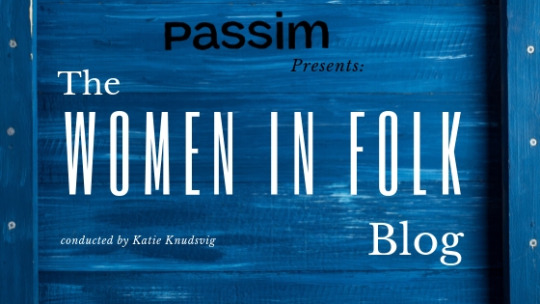
Hi there!
Katie here with another wonderful interview for the ‘Women in Folk’ blog. Today’s interviewee is none other but Isa Burke!
Isa is a founding member of the famed Lula Wiles band. She has been in and around music longer than she can remember. Both of her parents are professional musicians who have been making their way around the New England folk scene for quite some time. Growing up, the hallways of her house were filled with the likes of the Beatles, Joni Mitchell, Ella Fitzgerald, and many other iconic figures in music. A little known fact is that for three years, Isa Burke was a band geek, playing trumpet in her school band and stealing hearts at every pep-rally. However, her love of trumpet just wasn’t enough to continue her on this path, and so when she was 10 years old her parents gave her her first - bright red - electric guitar.
Isa thought that rock music was her calling, because “folk music is for old people.” But when she was 12 her parents convinced her to attend the Maine Fiddle Camp for the first time - where her parents both taught. That was the first place she saw young people playing folk music, and, well, the rest is history.
The following year she decided to pick up the fiddle and attacked it “with the fury of hell”. Most of her fiddle-playing friends were older and had been playing fiddle for much longer than she, so Isa practiced, practiced more, and practiced hard. She got pretty good pretty fast, but her technique still wasn’t where she wanted it to be, so she started taking private lessons in both fiddle and classical.
“One really pivotal thing for me was the Black Bean Cafe in Rollinsford, NH. Every month they had an open mic night geared towards songwriters, and I must have attended every single one from middle school all the way through high school. I made a lot of wonderful friends there, as well as collaborated with a ton of wonderful musicians.”
This, in addition to her many returns to Maine Fiddle Camp, pushed her to apply to Berklee to study violin, which eventually became her reality. Once there, Passim was a frequently visited and locale for her, as well as a favorite venue of hers to perform at. College wasn’t the first time she found herself on Passim’s stage...
“The first time I played at Passim was with my first band ever. It was a duo with my friend Lina, and we were called Isa and Lina. Matt Smith (booking manager for Passim) asked us to play at the Campfire. festival, and we were horrible. We couldn’t get our instruments in tune and Lena had forgotten her tuner at home. It was such a mess. Clearly, I overcame it, though.”
And overcome it she did. Lula Wiles often credits the founding of the band to a particular night at Maine Fiddle Camp where Ellie and Isa sang harmonies together and said they “felt this really special thing when we sang together”. Through Berklee, they got a showcase at the Grey Fox Bluegrass Festival and decided they wanted three-part harmony and bass. They asked incoming Berklee freshman and longtime friend Mali if she wanted to play the gig with them, and she quickly became an indispensable member of the group. “We realized we were a band now, and that’s how Lula Wiles happened.”
In addition to her work with Lula Wiles, Isa plays rock guitar in Shawn Trischka’s band Corporate Punk and is producing her first record for Liv Greene, an up and coming singer-songwriter. You can also catch her at Passim’s School of Music where she has taught classes from harmony singing to music theory to our Bluegrass ensemble. Catch her Vocal Harmony Singing Workshop on Monday, July 8th!
The next part of the interview discusses her role as a female in the folk industry.
(*strong language warning*)
[full interview under the cut]
Club Passim: Talk a little about your experiences as a female artist/all-female group in a heavily male-dominated music genre.
Isa Burke: It’s such a double-edged sword. That’s something I always come back to. Being a member of an all-female band vs. just being a female musician are totally different experiences too. I think often times women will start bands with other women because they know they won’t be belittled or talked down to, they know that their bandmates will assume that they generally know what they’re talking about, or they’ll feel comfortable enough to voice something if they don’t know it. This happened all the time at Berklee when I was the only girl in my classes. If I didn’t know something I would be too afraid to ask because I didn’t want all the guys in the room to think, ‘Well of course she doesn’t know this because she’s a woman,’ when in fact a lot of them probably didn’t know what that thing was either.
Being in an all-women band is so amazing. That’s a huge reason why I started playing lead guitar. When Ellie and I played duo, we were playing all of these country songs and I just said, “Wouldn’t it be funny if I took a guitar solo? I don’t really know how to do that’. But then I started doing it, and then I started getting pretty good at it. I think if I had been in a band with men, I wouldn’t have been comfortable trying to do this thing I’m not very good at yet but will get better at. We’re all very supportive of each other in the band.
Biases can come in many different forms. For example, when I was just starting to play electric guitar, my friend asked me to play a gig with them. We were rehearsing and I borrowed my friend’s pedal because I was still new to the electric and didn’t have my own set-up figured out yet. One of the other band members asked me, “Oh, is that your pedalboard?” And I just thought to myself, ‘Motherf*cker, you would never have asked ANOTHER GUY if that was their pedal board, you’re asking me because I’m a girl.’ But it wasn’t my pedal board. I didn’t want him to think that women can’t own sick pedal boards and by the way, I have a sick pedal board now, so I think I just ended up lying and saying that it was mine.
I’ve also noticed real differences in how people talk to me about my fiddle playing vs. my guitar playing. People expect women to take fiddle solos more than guitar solos. Often there’s a tone of surprise when they compliment me on my guitar playing because they’re not expecting it, you know? All of these things are very subtle and most of the time people probably don’t even realize or notice the little biases that they have. I take very seriously the role that I have to be visible to other women and men. I get really psyched when I see a young boy in the audience at a gig and I take a guitar solo because then he’s not going to grow up thinking only men can play the guitar, and maybe if he starts a band he’ll hire a woman guitarist. But of course, inspiring the young gals is my literal favorite thing in life. I feel really lucky that I have a platform to move the needle a little bit and help break down these biases.
CP: Do you notice a difference in how you’re treated by other artists, venues, audiences, and industry professionals before vs. after you play?
IB: Yes, I’ve definitely noticed it more when Lula Wiles was younger. We’d walk in to play a gig and here were three girls in floral-print dresses with our “little band”, but then we get on stage and you see three multi-instrumentalist women doing their thing and playing pretty powerfully. That’s when people usually figure out we know what we’re doing.
I have heard some crazy stories from other people though. For example, a friend of mine was an instructor at a music camp and after she played in the faculty concert one time, one of the other faculty members who was a guy came up to her and her bandmate and said, “At first I thought of you two as sexual objects but now I know you’re also great musicians.” I think he thought he was joking but like, come. On. My blood still boils every time I think about it.
CP: Incredible classical artists such as classical pianist Yuja Wang use their performance attire as a way to express themselves. This provocative style of dress has been viewed as “distracting” from the music. What are your personal thoughts on women using fashion and sex-appeal as a means of bringing in more audience members and assisting in selling their music?
IB: Another one I could talk about all day. It’s so complicated, right? You want to look good and feel good on stage. That is usually my primary goal when I am getting dressed for a show: ‘what will make me feel good and enable me to give the best possible show?’ A lot of times it feels like putting on armor.
As women, it is drilled into our heads that we have to look attractive, that we have to look sexy. It’s really hard to escape that. I never want to fault women for using that phenomenon to their advantage, but I also want the music world to be a hospitable place for women who don’t want to do that, who want to just wear a t-shirt and sneakers on stage and not wear make-up and sound incredible.
I still don’t really know where I come down on that one, to be honest, but I had a really great conversation with my bandmates in the van last week. We were talking about the “whatever choice you choose to make is a feminist choice” brand of feminism, but we had a problem with that. The thing is, all choices can’t be equal choices if some are rewarded by society and certain others are punished.
It’s really important to interrogate your own desires. Ask yourself, ‘am I doing this because it makes me feel more like myself? Or am I doing this because it makes me feel more acceptable to the world?’ Until all traces of patriarchy are gone from the world, which will probably never happen, we won’t ever really know what our true deepest desires are because they are so shaped by the world around us. At the end of the day, it’s important to constantly ask yourself questions, interrogate, and critique.
CP: What do you do in a situation when you feel disrespected by the artists/co-workers you’re surrounded by?
IB: It depends on the situation. If someone is blatantly rude to me I would probably just call them out on it and walk away. But if someone does something a little more subtle or if they show a bias they have, I will try to find a way to poke at that in a friendly way. For example the pedal board guy. I probably would have said something like, “Well, what makes you think this isn’t my pedal board? Why wouldn’t it be?” It’s a hard balance because you do want to stand up for yourself, but you also want to reach them, right? You hopefully want to change someone’s mind a little bit.
Sometimes people will give my bandmate Mali a condescending or patronizing compliment such as, “Oh you sweet girl, you play such nice music! You must have been gifted this talent”, and what I love that she does is she’ll say something like, “Oh well, thank you, but I actually just practiced a ton and worked hard to get good at my instrument.” I think letting people in on the hard work musicians have to put in can shift their perceptions in a subtle way.
CP: In your opinion, how can men be more aware or informed about their women peers and co-workers in the music industry?
IB: First off, I think that it’s really important to examine your own perceptions and try to figure out where you might have a bias, which is not your fault and is the fault of society. Take a mental inventory of the way you regard your male musician friends, versus the way you regard your female musician friends and see if there are any significant differences. Really try to dig into why you think that may be.
The second thing I would say is to make a conscious effort to hire women. Try to stay away from all-dude bands. I think that men instinctively go to other men when starting a band because they’re more visible in this male-dominated industry, but I think with a slight mental adjustment you can find equally qualified women who maybe haven’t been given as many opportunities, even though they deserve the opportunities just as much. That also has the pleasant side effect of increasing visibility for women, and I cannot say enough how important it is for people to see themselves represented. It’s something I focus on a lot.
There’s also a real premium and value placed on being able to “shred” on your instrument and being technically proficient; I saw this at Berklee a lot. I know a lot of women who can seriously shred on their instrument, but this value placed on shredding is so prominent amongst men, and I just don’t think that’s the most important thing about music. A lot of my favorite musicians aren’t that technically proficient but play with such emotion and musicality. I love getting to hear musicians play on their second or third instruments because they can’t fall back on their muscle memory and so they have no choice but to express themselves. Remember what music is all about.
CP: What message do you want to display as a woman in folk music?
IB: Overall, what I want to project into the world is that there is nothing weird about a band of women in floral dresses who have hairy legs and play the shit out of their instruments. Those things can all co-exist very peacefully. I think it is equally important to increase visibility to women and trans/non-binary people in the music industry so that we can eliminate the expectation that only certain genders can do certain things; who can be a producer, who can be a band leader, who can play drums, who can play guitar. I think that it didn’t even occur to me that I could be a producer until I heard about women producers. It didn’t occur to me that I could be a drummer (one of my secret but not-so-secret dreams) until I heard about women drummers.
I want to make people aware we all have certain biases that aren’t our fault. We’re all born into a world that creates those biases in us, but it is our responsibility to dismantle them and un-learn them.
I also want to pass on all the help and opportunities that were given to me when I was first starting out. There were a lot of incredible women that gave us the chance to open for them, as well as some great men like Matt Smith and Matt Glaser who helped us out and guided us, and now that I’m in a position where I can help others out I want to do that because so many people did it for me.
CP: What words of wisdom/encouragement do you have for aspiring women in folk?
IB: Keep an eye out for the sexist bullsh*t, but also give men a chance to surprise you. A lot of them can learn. Plan for the worst, hope for the best. That’s what I try to approach every new situation with. I also think that collaborating with other women will pretty much always give you a huge confidence boost. I think that playing with women will give you a chance to explore parts of your musical identity you haven’t before, which will give you more confidence the next time you’re in a rehearsal and some guy makes a comment assuming you don’t know how to play your instrument.
Our society tries to put women in a box, and I think really trying to see the box as clearly as you can so you know how to break out of it is important. Recognize that women are often working with a confidence deficit, and ‘fake it till you make it’ is honestly one of the best pieces of advice I can give to anyone. Obviously, know your weaknesses, know what you need to work on and work hard at it. Hit the shed and work hard but don’t feel like you have to be totally perfect at everything. There’s a common feeling among women that you have to be twice as good to get half the recognition. But try to say f*ck that. Whenever you can.
~
Thank you, Isa, for such a thoughtful and eye-opening interview! You have such wonderful and informed opinions. I think we can all learn from this and try to examine our own biases a little more.
When’s the last time you’ve given your judgments a second thought?
Thanks again to Isa, and thank you for reading! Stay tuned for the next installment of the ‘Women in Folk’ blog!
Katie

PC: Louise Bichan
3 notes
·
View notes
Text
Crate Digger’s Corner: John Hartford- Aereo-Plain (Warner Brothers, 1971)

Crate Digger’s Corner…by DJ Musically Rich
(If you’d like to listen to a track from the album as you read, go to the end of the post to start the song)
This week in Crate Digger’s Corner I cover the 1971 old-timey masterpiece, “Aereo-Plain” by John Hartford. Centered in the middle of folk, country and bluegrass this album has four masterful players intermingling with John, who plays a few different string instruments on the album as well and is a fine player. His band consists of (in various configurations depending on the song) Vassar Clements (fiddle, viola, cello, guitar), Norman Blake (dobro, guitar, mandolin), Randy Scruggs (bass) and Tut Taylor (dobro) and has the tightness of a family band. He also has like-minded musician, David Bromberg, in the production chair. Despite how in sync the musicians are, this album still maintains the feel of five guys just sitting in a park jamming together on some tunes. They also put the album together, similar to if one was going to program a long form radio show. The tracks make sense in succession, the players are together in different formations to give different textures to the songs. There is a wonderful mix of instrumental and songs with vocals. It even follows the radio show form right down to a ‘Station Break’ before the second to last song, but we’ll get to that in just a moment.
To start the album Blake plays guitar and everyone (except Scruggs) sings the opening song ‘Turn Your Radio On’. It puts you inside the idea that you are sitting around a radio listening to the music hour on a Sunday afternoon. Then we touch on the everyday life of a blue collar worker in ‘Steamboat Whistle Blues’. ‘Back In The Goodie Days’ has Scruggs and Hartford opening the tune with a conversation between bass and banjo that leads to a great, jaunty tune! Vassar Clements has a great violin solo that fades as the song ends. ‘Up On The Hill Where They Do The Boogie’ is a lighthearted song about where people go to…dance? (Or however you’d like to interpret the word “Boogie”) That is followed by a little extension to the song, called ‘Boogie’. It seems that in my ‘sitting in the park’ theory John had one more verse for the song that he thought of after they had finished it up, so he shared it acapella. ‘First Girl I Loved’ which has Clements playing violin, viola and cello on the track has a magnificent instrumental break to end the song. The first side ends with ‘Presbyterian Guitar’, a guitar and bass duet led by John’s melodic guitar playing.
Side two starts out with a couple upbeat by the full band. ‘With A Vamp In The Middle’ has a light-hearted vocal that fits the song perfectly and ‘Symphony Hall Rag’ is an instrumental burner. They both show off the chops of this incredibly talented group. Those are followed by the very brief (under a minute) ‘Because Of You’ which is just John and his guitar singing for you. ‘Steam Powered Aereo Plane’ is powered by some great soloing in the middle of the song. That is followed by ‘Holding’, a song about the good times of friendship and being around one another. It is quite the earworm. ‘Tear Down The Grand Ole Opry’ (I think we can figure out what they were doing in the previous song, because why would anyone do this…albeit, it has since happened in real life) is a great sing-a-long on the album with verses being sung by John, then everybody joining in on the chorus. Clements is fantastic playing a wonderful descant during the 2nd half of the song. A wonderful duet between fiddle and banjo takes place on ‘Leather Britches’ led by Vassar’s playing. That is where the fifteen second ‘Station Break’ falls into place before ending the way the album started with another rendition of ‘Turn Your Radio On’.
This album is not only for the fans of the three genres I mentioned above, but also for people who just want something fun and upbeat, fans of acoustic music, and much else. If you want to close your eyes and be transported to a country field with a group of friends and their guitars this album will do that trick. John Hartford and his legendary backup band take this album to heights that hopefully can be appreciated by all.
Stars: 4.5/5
Available on: LP/CD
RIYL: The Flying Burrito Brothers- The Gilded Palace Of Sin, David Bromberg- Demon In Disguise, Chester & Lester- Chet Atkins and Les Paul, The Wood Bros.- Ways Not To Lose
To see photos of other albums in my collection follow my IG: djmusicallyrich
To listen to a track from the album…
youtube
#djmusicallyrich#cratediggerscorner#musicreview#musicreviews#albumreviews#recordcollection#albumcollection#vinylcollection#johnhartford#countrymusic#bluegrassmusic#folkmusic
5 notes
·
View notes